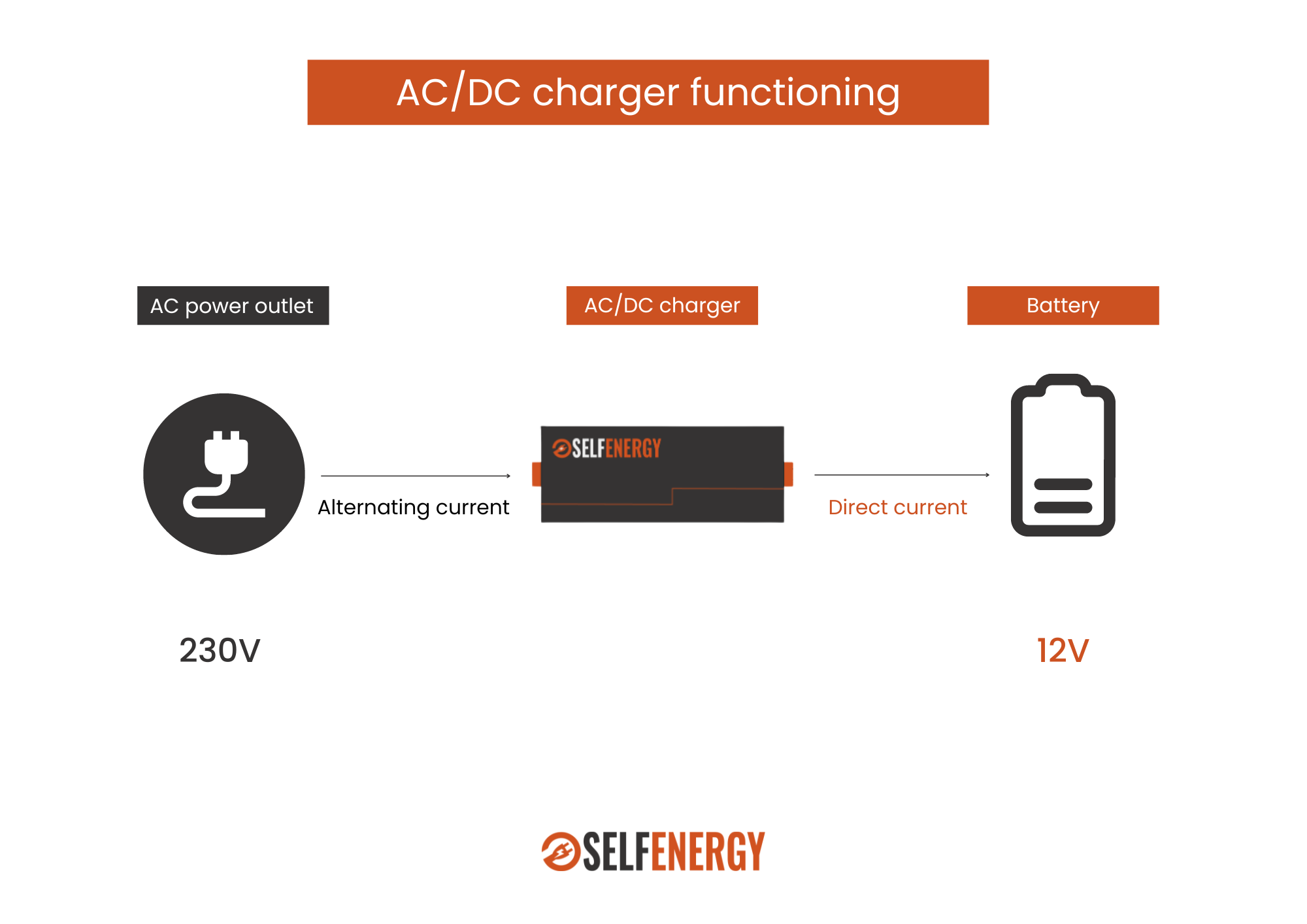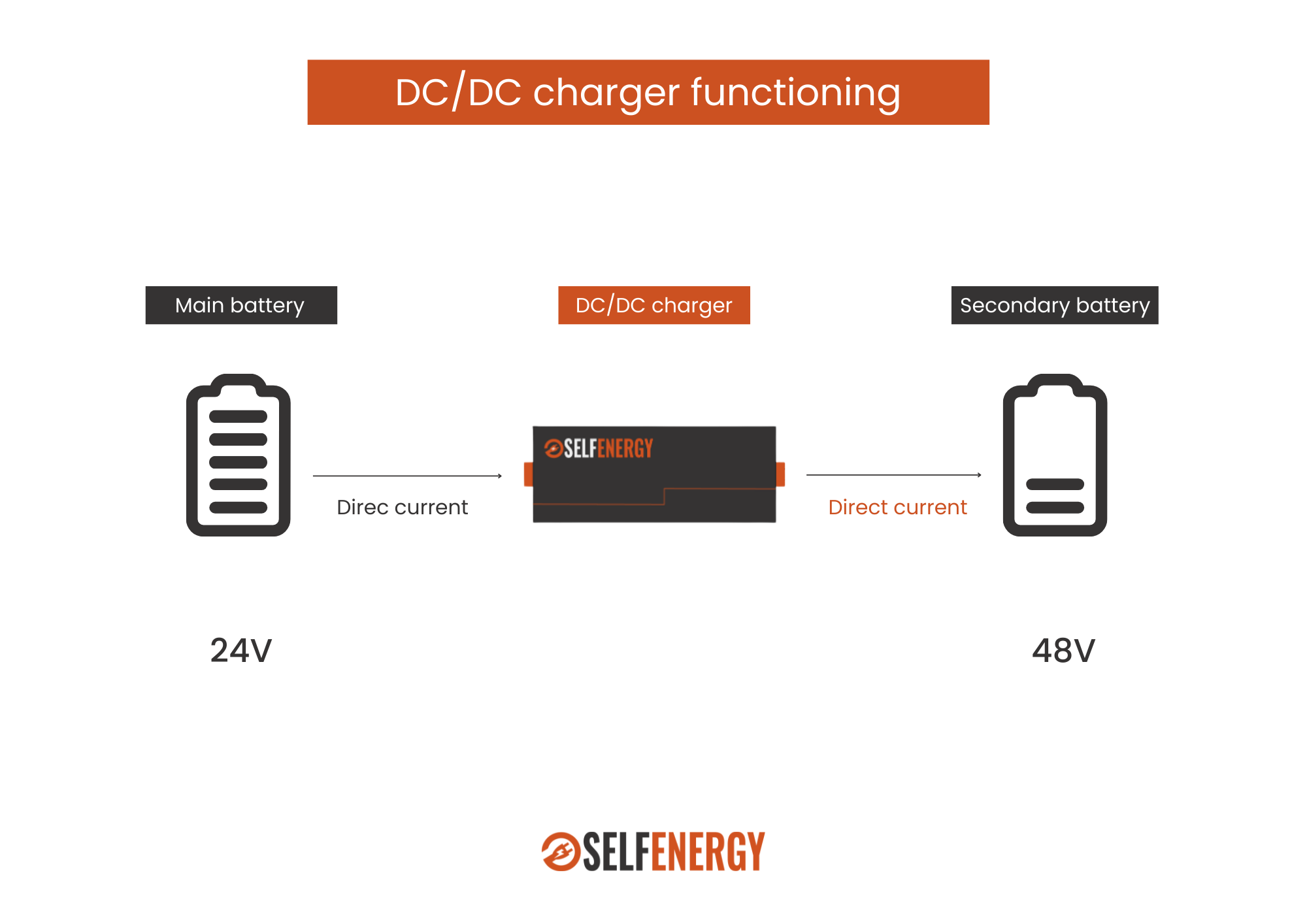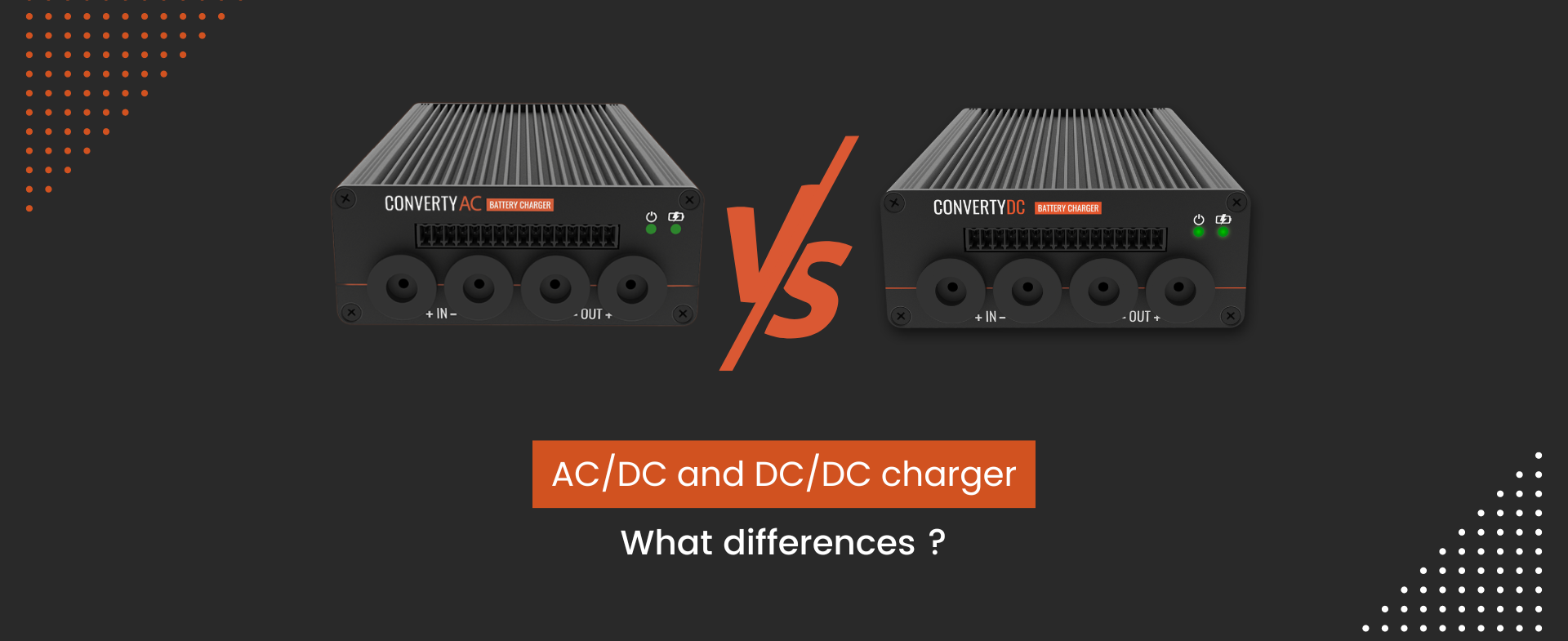Electric current exists in two forms: alternating current (AC) and direct current (DC). In alternating current, which is used to transport electricity over long distances, electrons flow in both directions in the electrical circuit to limit energy losses. In direct current, which is found in batteries, the electrons flow in one direction only and more stably.
From these forms of current come two types of charger that can effectively recharge a battery: the AC/DC charger and the DC/DC charger or converter.
In this article you will find the specifics of the AC/DC charger and the DC/DC charger in order to understand the differences between them and to select the most suitable solution for your needs.
The AC/DC charger
The AC/DC power supply applies to all kinds of electronic devices with or without a battery (television, mobile phone, electric bikes, etc.). It transforms the high voltage of the alternating current (230 V in France) into a voltage, generally lower, adapted to the supply of an electronic device or a battery.
AC/DC charger and battery charging
A battery cannot be recharged directly from AC current because of the incompatibility of its DC voltage and the AC voltage of the public electricity network. It is therefore essential to be able to convert the alternating current into direct current of the same voltage as the battery in order to recharge it. In other words, convert the current from AC to DC.

Applications and functioning
The AC/DC charger can be used to recharge all types of batteries, from the battery of an electric drill to that of an electric vehicle.
Thanks to the electronic intelligence it contains, it can convert an AC voltage from the public grid (230V) into a DC voltage from a 12V, 36V or 48V battery for example.
3 characteristics of the AC/DC charger
- Removable for certain applications (bicycles, electric vehicles, scooters, drills, robotics etc)
- Can be used in certain applications such as boats
- Converts alternating current to direct current
The DC/DC charger
DC/DC charger and battery charging
By definition, DC/DC charging is the conversion of direct current (DC) to direct current (DC). In this case, there is no need for an AC current because the energy is transformed on board the same application that already has a DC voltage.
The charger or DC/DC converter supplies an auxiliary battery running on DC from a motor battery, also running on DC.
Applications and functioning
The DC/DC charger or converter is most often used in boats, motor homes or professional vehicles (ambulances, foodtrucks, large utility vehicles, etc.) that have an engine battery and an auxiliary battery to operate the vehicle’s ancillary equipment (household appliances, lights, etc.).
The role of the DC/DC charger will be to recharge the auxiliary battery from the AC current of the engine battery. Thus converting the engine battery voltage into the auxiliary battery voltage.

3 features of the DC/DC charger
- On board a boat or motor home
- Continuously connected to the auxiliary battery and the engine battery
- Converts direct current into direct current
AC and DC converter: Why choose Selfenergy for the design of your charger
Expert in the design and industrialization of intelligent chargers, Selfenergy accompanies you in the customed development of your AC/DC or DC/DC charger.
- Selfenergy’s Converty AC (AC/DC chargers) can transform any AC current into DC current with a voltage of up to 48V or more depending on your project and application.
- Selfenergy’s Converty DC (DC/DC chargers) garantee intelligent and efficient charging of an auxiliary battery from 12V to 48V from the engine battery.
In order to optimise the performance of your battery, Selfenergy chargers adapt to all electrochemical technologies (lithium-ion, lead-acid, Ni-MH, etc.) with a charging power of up to 1000W output. They can be parallelized to deliver more power and are IP43 waterproof rated.
Want to know more about our chargers? Our sales team and engineers are at your disposal to help you in all stages of your project. Please contact us for more information.
